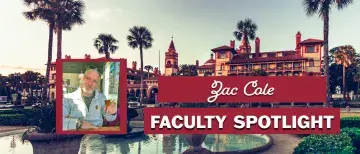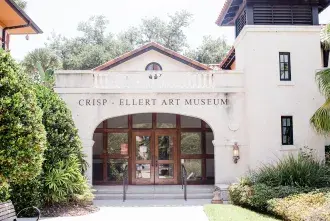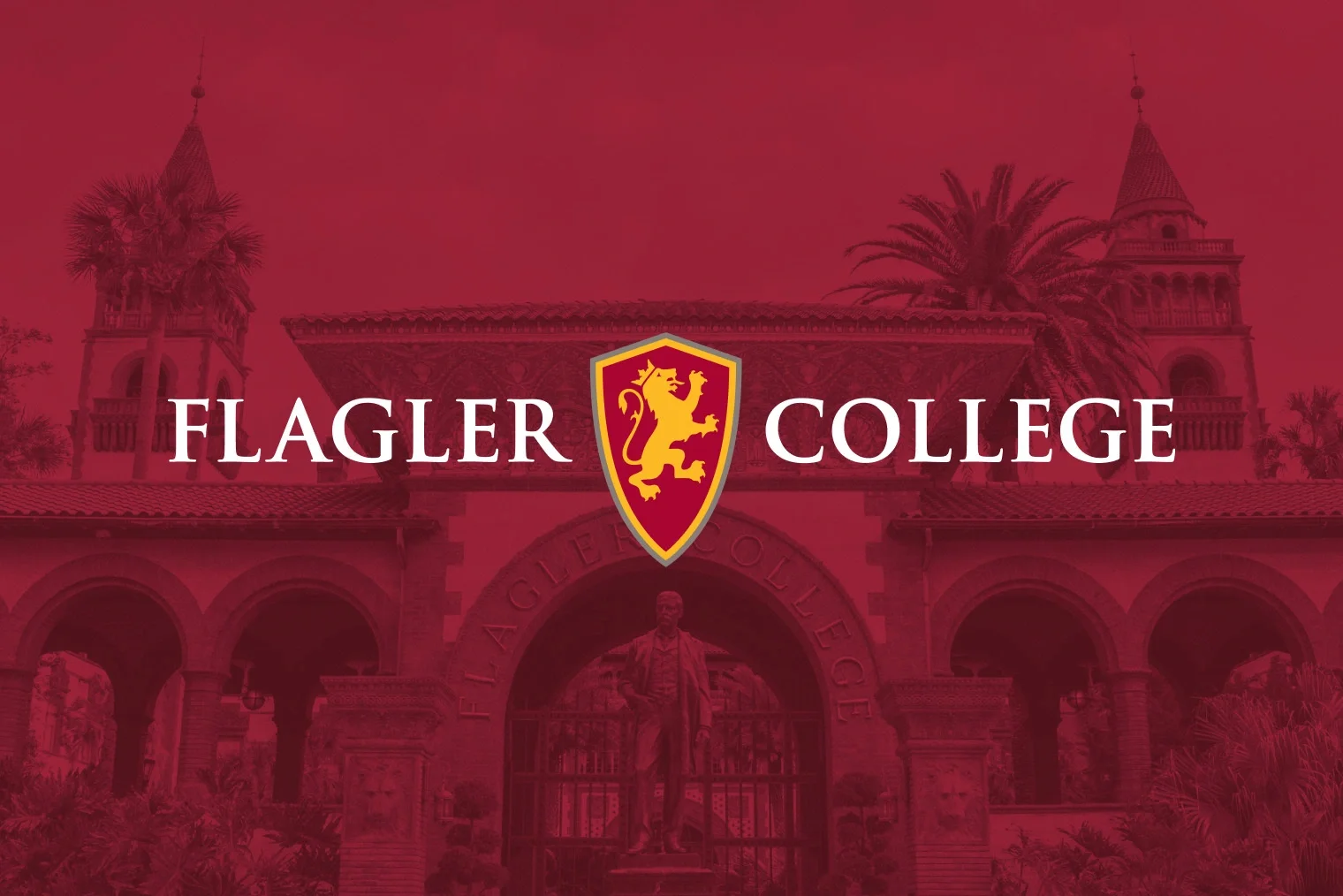
One area of Cole’s research focuses on trends within food and beverage tourism, an area of expertise he draws on for his ongoing “Beverage Appreciation” course. Last March, Cole took a research trip to Europe with a specific focus on this beverage-side of the hospitality and tourism industry.
The trip consisted of multiple distillery visits, including one to an organic distillery on an island in Sweden, and a Make Your Own Gin Class at Copenhagen Distillery. He said this experience contributed greatly to Flagler’s growing beverage management focus within the Hospitality & Tourism Management Program. It was also the inspiration and precursor to a “Beverage Appreciation” Lifelong Learning class offered last May.
His first stop was in Copenhagen where he did research related to his contracted book on distillery visitation with the American Distilling Institute. His second stop was in ITB Berlin, the largest travel conference in the world. Cole said the development of a potential FlagSHIP trip to this region in the world is in the works with planned participating in the conference itself. While in Berlin, Cole also made stops for his book research.
The last stop of his research trip was in Rothenburg on de Tauber where a branch of Ansbach University of Applied Sciences, one of Flagler’s newly established academic partners, is located. This was a follow-up to the faculty trip taken there in December for further exploration of partnership opportunities with the HTM program.
Learn more about Cole’s research trip in the Q&A below:
What was the catalyst for this trip?
On his first stop to the Swedish Island of Ven:
“It's easily accessible from Copenhagen... The reason that I went there [is] because I met the owner of a distillery on that little island... I do work for the American Distilling Institute, a body of craft distillers. I present at their conference almost every year. That’s where I happened to meet a gentleman who owns a distillery and runs a lab where they test spirits... I’m doing a project for ADI, I’m writing a book, so he invited me to come visit him. I happened, through that same group, to know some people that own distilleries in Copenhagen, so I doubled and tripled up [my distillery visits] for the trip.”
What is the book you’re writing for ADI about?
“It's specifically about distillery visitation. So, ADI is publishing a series of, I hate to sell it short, but ‘How-to’ books. [For example,] if you're a person who has a distillery or wants to start one, all the different aspects [involved there]. They've also done a book in the series about the science of distilling, and the latest one focused on the accounting and finance side of distilleries. Then mine will be the hospitality side of the industry, like distillery visitation experiences.
Are you bringing this content into your classes?
“Oh yeah, all the time. I teach a beverage appreciation course, so that's kind of my playground to think and discuss and talk about these ideas that I'm encountering when I'm in this case, going to distilleries and that sort of thing.”
Were there things that you picked up on during your visits to these distilleries that you didn't have the skills in or know about before?
“Oh yeah, I mean we think about interpretation in tourism all the time, but it's usually historic interpretation or [for example,] how do we describe in an adventure context how to safely zipline? - those kinds of things. Applying [that interpretation] to what amounts to a production process in terms of making spirits, it tickled enough of my expertise but was enough of the unknown. Trying to figure out why people come to a distillery and how we can tie brands into culture that aren't necessarily there, that has been really a learning environment for me.”



